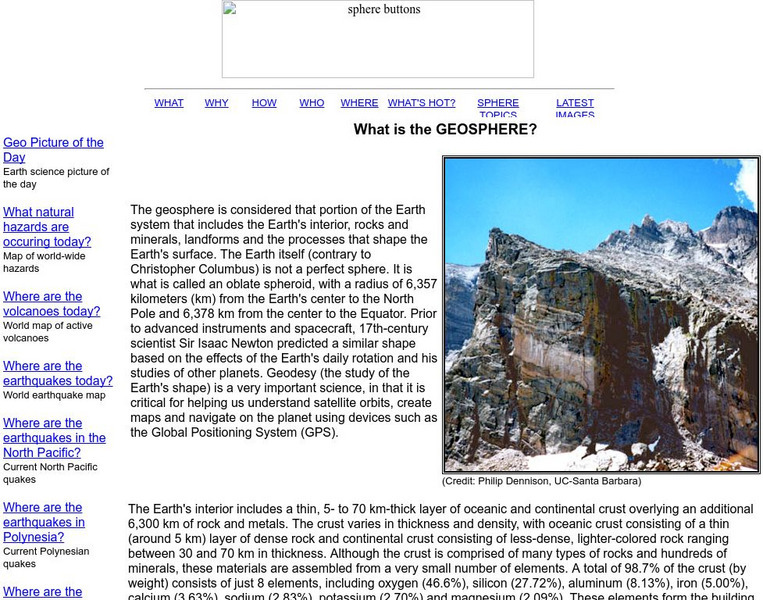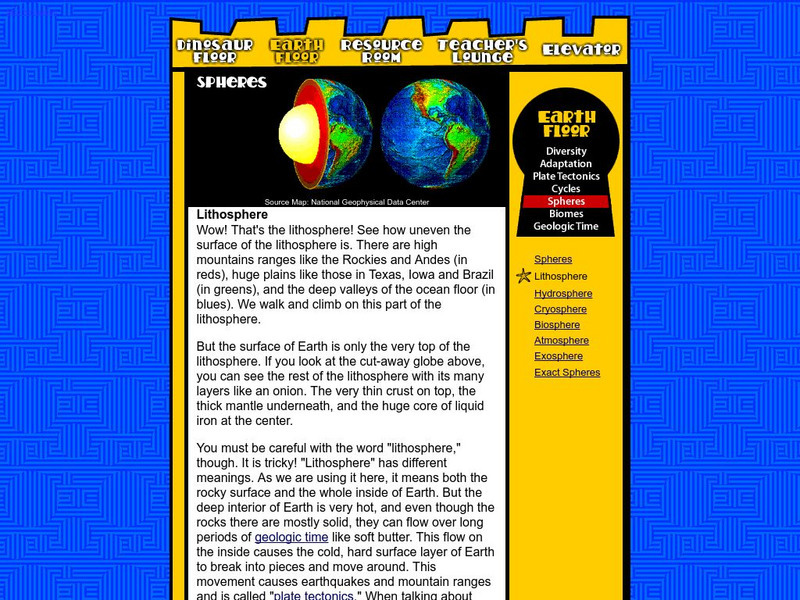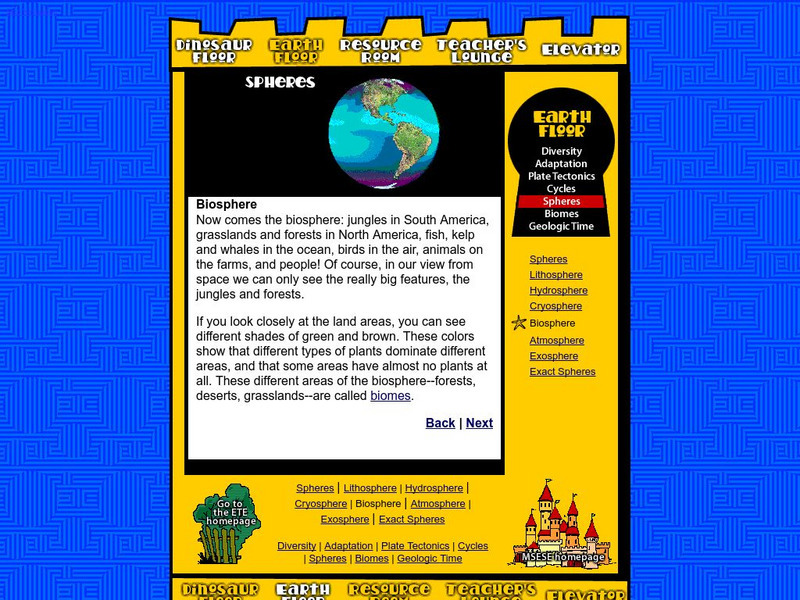Weber State University
The Sun and the Seasons
Why is there more daylight in June than in December if you live above the equator? How does the angle of sunlight shift throughout the year? Answer these questions and more with an interactive article about the sun, its path through the...
Penn Museum
Penn Museum: China Gallery
Invite your learners to take a closer look at the art and mathematical function of dome buildings as designed by the ancient Romans. In the next segment of this attractive worksheet set, your young historians will then learn about...
California State University
Csu: The Sourcebook for Teaching Science: Earth Systems Interactions
Explains what the four spheres of the Earth are and describes how volcanic eruptions affect the different spheres. Also provides a list of events that are examples of interactions.
Rice University
Museums Teaching Planet Earth: What Is the Geosphere?
Describes Earth's layers, which make up the geosphere.
eSchool Today
E School Today: Earth System
Learn about the systems that make up Earth, and find out how they interact.
Center for Educational Technologies
Nasa: Classroom of the Future: Spheres Atmosphere
Atmosphere is briefly discussed here as one of earth's "spheres."
University of California
Ucmp: Creating an Earth System: Interactions in the Earth System
A brief description of the four spheres of the Earth, with an activity where students brainstorm interactions among them.
Center for Educational Technologies
Exploring the Environment: Earth System Science
Explains what the four spheres of the Earth are, and the interactions between them.
Center for Educational Technologies
Nasa: Classroom of the Future: Spheres: Lithosphere
At this site from the NASA Classroom of the Future, you can learn about the many different layers of the earth and see what the earth would look like cut in half.
Center for Educational Technologies
Nasa: Classroom of the Future: Spheres: Hydrosphere
Use this site to learn about the millions and trillions of gallons of water that covers the earth, known as the hydrosphere.
Encyclopedia of Earth
Encyclopedia of Earth: Physical Geography
Get a general grasp on the four spheres, five sub-fields, and two scales of physical geography.
Center for Educational Technologies
Nasa: Classroom of the Future: Spheres: Biosphere
Use this site to learn about the different areas of the biosphere, known as biomes.
University of Virginia
University of Virginia: How the Greeks Used Geometry to Understand the Stars
An article explaining how the Greeks were able to use their science and mathematics to predict where astronomical objects such as the Planets could be found in the nighttime sky even though their underlying premise was that the earth did...
Center for Educational Technologies
Wheeling Jesuit University: How Are Things Divided Among Earth's Four Spheres?
See if you can classify various objects in the categories of land, water, air or living thing. This activity is interactive and you will receive a score for your performance.
Digital History
Digital History: The Space Race
In October 1957, the Soviet Union launched Sputnik 1, the world's first artificial satellite. The 184-pound, 22.5-inch sphere orbited the earth once every 96 minutes. Sputnik transmitted radio signals for 21 days and later burned up in...
Other popular searches
- Spheres of the Earth
- Four Spheres of Earth
- Spheres of Earth
- Spheres of Earth Activity
- Spheres of Earth Acidity
- Identify Spheres of Earth
- Spheres of Earth Acitity














